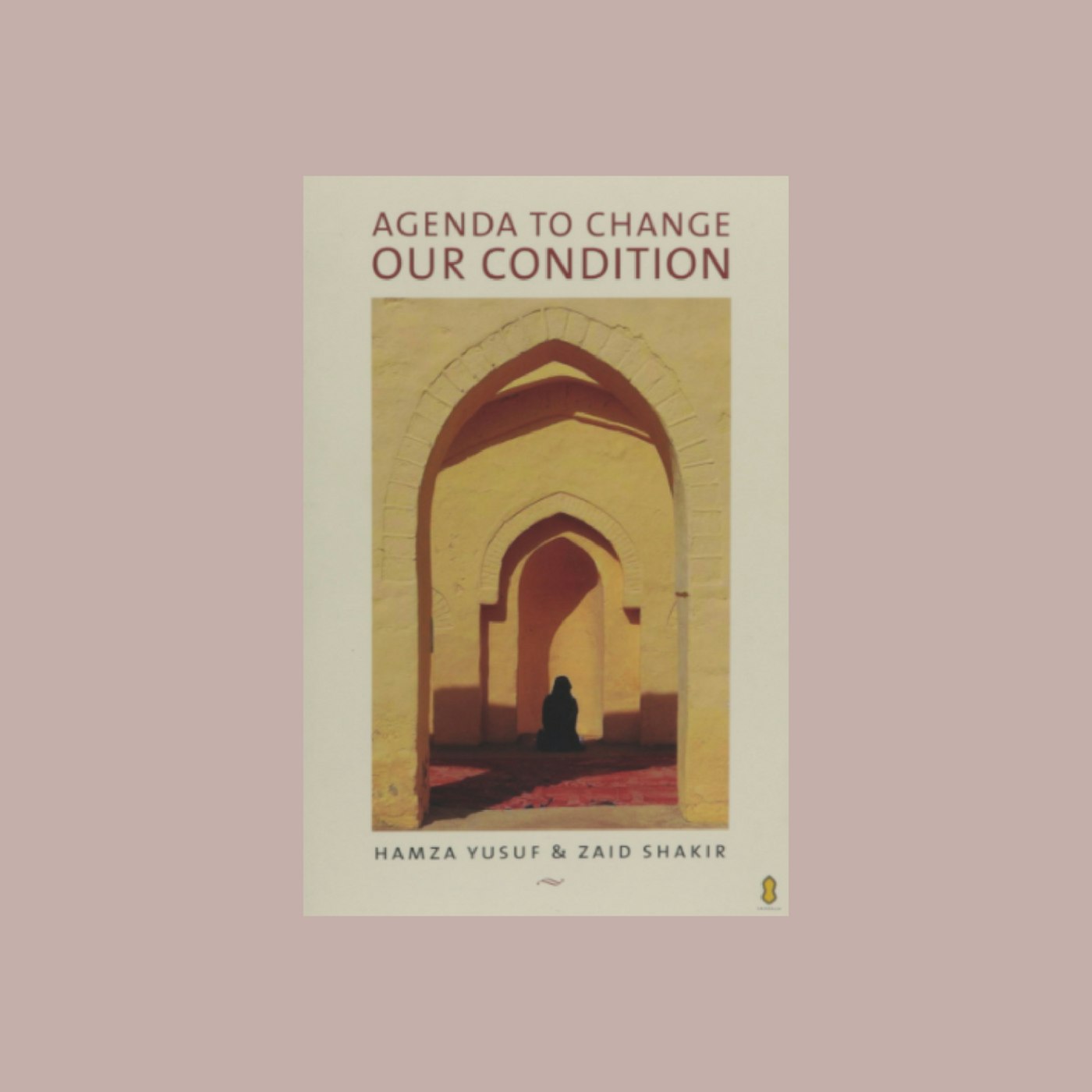
‘Agenda to change our condition’ is written by Shaykh Hamza Yusuf and Imam Zaid Shakir. It acts as a physical item of the “Zaytuna approach” of ‘trying to increase knowledge, increase education; Muslim education, Islamic education; and the idea of knowledge as a whole’.
Studying Arabic, the word Ilm (knowledge) comes into mind, particularly when thinking of the background behind this book. I want to touch on the science of word derivations in the Arabic language to talk about Ilm. If you change the letters of ilm around you get two other words, amal and lama’. I put these in order, of ilm, amal and lama’ and here is why. Ilm means knowledge, and amal means action. Actions are based upon knowledge and thus, when people know of something and act upon it, they become lama’, they become brilliant. This, I believe is the best way to describe this book and the effect it has on the reader.
Prior to reading Agenda to change our condition, I was reading a book called mindset, written by Dr. Carol S. Dweck. It digs deep into the two mindsets of the human being. The growth and the fixed mindset, reflecting on how both the mindsets play a significant role in different circumstances. It allows the reader to acknowledge the two and place them into a scenario and understand themselves as individuals to see which mindset is the best fit. It was a good read, and another title I would highly recommend.
Related
Listened to our Podcast Yet? We discuss ‘Agenda to Change our Condition’ over on Amaliah Voices
Growth mindset
When reading ‘Agenda to change our condition’, I had to mentally place myself into a growth mindset. Why? Because I had to allow room for change, the change of my condition. I had to allow my eyes to open to guidance, and most importantly, reflection.
The book consists of five chapters; the first acknowledging Taqwa, through its definition and benefits. The second reflecting on the heart and its treatment through sincerity, the third advising practical steps on how to change our condition, the fourth giving exercises on achieving Taqwa and the fifth explaining civic involvement. Each chapter guides the reader to reflect, accept their characteristics and where one has room for improvement.
Going into this subject of self-improvement, I particularly took note of the advice from Imam Zaid Shakir and Shaykh Hamza Yusuf to practice exercises for attaining Taqwa. In chapter four, they advise when trying to do any of the eight exercises, attain Taqwa. From guarding the prayer to guarding the eyes; one should stipulate with themselves for forty consecutive days. In these forty days, one will strictly abide by (for example) being sure to pray their five daily prayers on time, without a miss. If a prayer were to be missed, the forty days of praying five times a day would have to restart. Both Imam Zaid Shakir and Shaykh Hamza Yusuf acknowledge that the exercise will not be easy and may take a long time to complete, “but this is the struggle of a believer, so we should never despair.” This is where the amal, the action that is based upon knowledge, is put into place. This exercise can also be carried out for the guarding of the tongue, restraining oneself from swearing, backbiting; anything of the sort that will make the tongue heavy and the heart dark. This is just one of many techniques that are proposed in ‘Agenda to change our condition’.
This book is an agenda. In the Cambridge English Dictionary, the noun, ‘agenda’, is described as a list of matters to be discussed at a meeting/a list of aims or possible future achievements. Therefore, the ‘Agenda to change our condition’ should be reviewed as often as possible. In times of hardship as well as times of ease. It should act as a personal reminder, to connect with one’s own faith and belief and not let world endeavours get in the way. Spiritual strength and control of the Nafs is obtained through the reading of the ‘Agenda to change our condition’. Through this, if Allah wills, the reader shall be on their journey to become lama’, to become brilliant.
I hope this book benefits you, as it has me.
Milly Parvin
Milly Parvin is an award-winning poet and public speaker. She is a full-time student and enjoys reading and writing poetry in her spare time. She describes herself as a ‘bookworm’ as she is forever trying to find the best book to read. When she has not got her head stuck in a book, she enjoys cycling in the parks of London with her friends. Milly aspires to be an English Literature graduate of Cambridge University and spread her passion for English on a global scale.